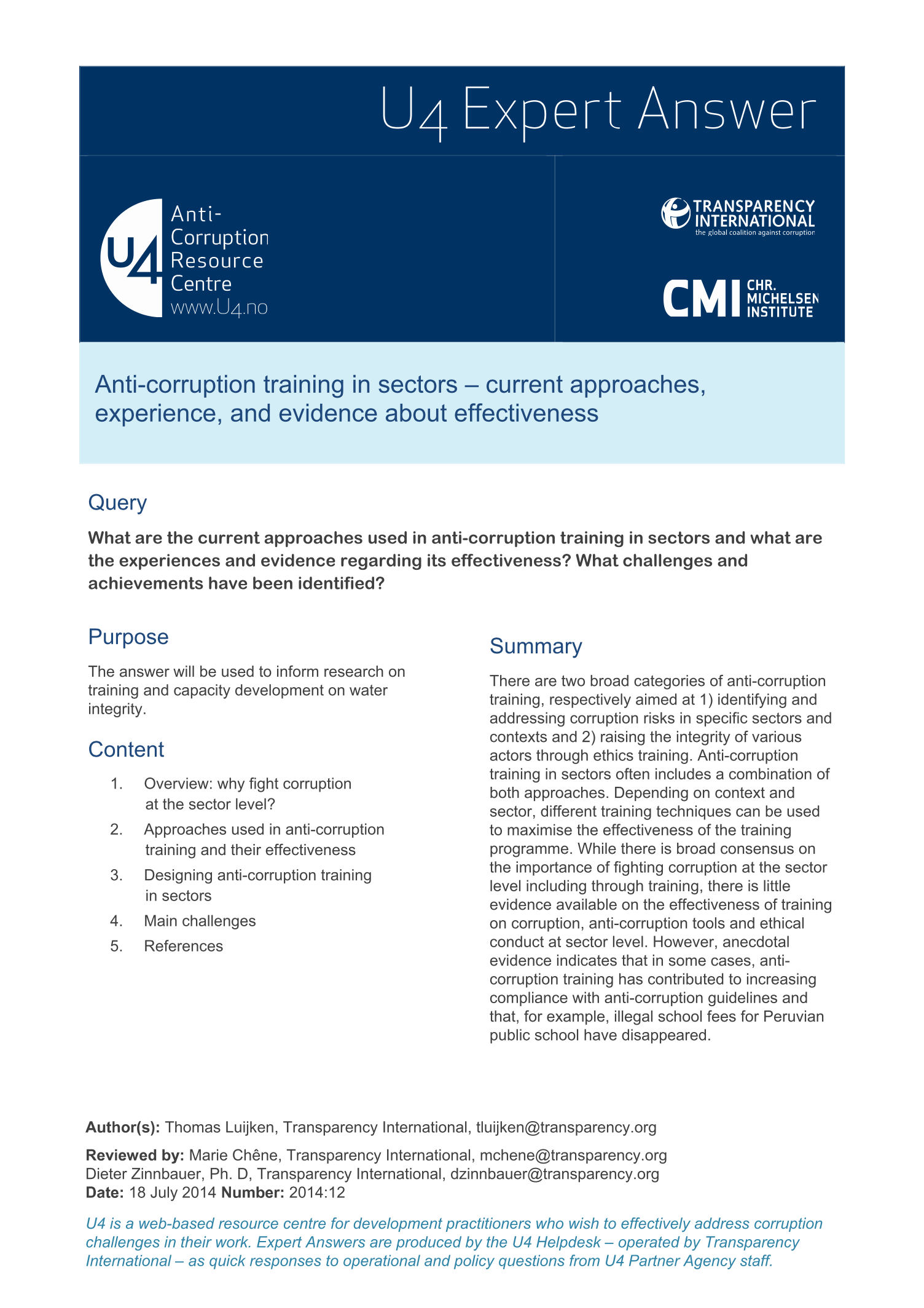U4 Helpdesk Answer
Anti-corruption training in sectors – current approaches, experience and evidence about effectiveness
There are two broad categories of anti-corruption training, respectively aimed at 1) identifying and addressing corruption risks in specific sectors and contexts and 2) raising the integrity of various actors through ethics training. Anti-corruption training in sectors often includes a combination of both approaches. Depending on context and sector, different training techniques can be used to maximise the effectiveness of the training programme. While there is broad consensus on the importance of fighting corruption at the sector level including through training, there is little evidence available on the effectiveness of training on corruption, anti-corruption tools and ethical conduct at sector level. However, anecdotal evidence indicates that in some cases, anti-corruption training has contributed to increasing compliance with anti-corruption guidelines and that, for example, illegal school fees for Peruvian public school have disappeared.

Cite this publication
Luijken, T.; (2014) Anti-corruption training in sectors – current approaches, experience and evidence about effectiveness. Bergen: U4 Anti-Corruption Resource Centre, Chr. Michelsen Institute (U4 Helpdesk Answer null)
Disclaimer
All views in this text are the author(s)’, and may differ from the U4 partner agencies’ policies.
This work is licenced under a Creative Commons Attribution-NonCommercial-NoDerivatives 4.0 International licence (CC BY-NC-ND 4.0)

